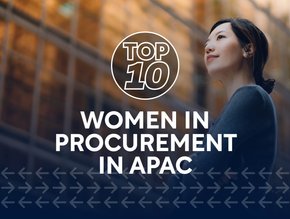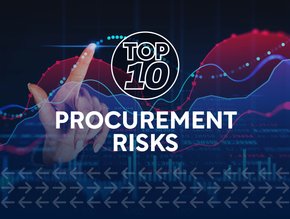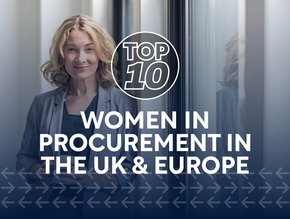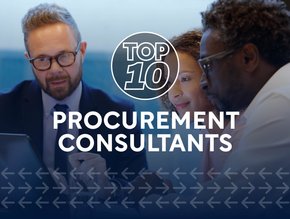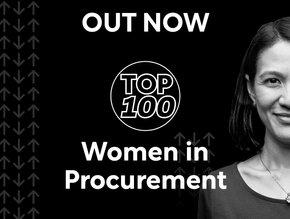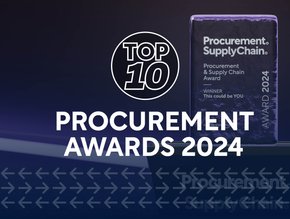Top 10 Procurement Sustainability Strategies
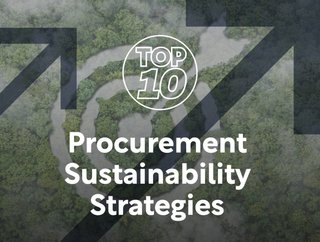
10 - ‘Plan for Better’ J Sainsbury
Sector: Retail
The Plan for Better strategy sets out their sustainability goals and commitments across customer health, people, and the planet. A major part of delivering the Plan for Better is driven by action in their supply chains. Through Sainsbury sourcing practices, they say they are committed to delivering positive impacts.
As a business, they have already made significant progress towards their goals. For decades, the company has supported sustainability certifications and articulated robust commitments to lead the industry forward. Their plan has included long-term approaches to improving sourcing practices and are continually building on their ambitions to drive more sustainable outcomes. The strategy lays out how sustainable procurement and sourcing is both foundational to their business resilience and an integral element in delivering the Plan for Better.
Read more about the J Sainsbury ‘Plan for Better’
9 - Scania's 2030 green purchasing goals
Sector: Automotive
Scania is turning their set of supply chain decarbonisation targets into mandatory purchasing requirements. The company has introduced a change to their strategy to significantly remove supply chain emissions. By 2030, the company targets 100 percent green purchases of steel, batteries, aluminium and cast iron for its European operation.
"We are excited to announce this transformative move, prepared in close collaboration with our suppliers and partners. Implementing green purchasing requirements is both a question of making sustainable transport a reality and ensuring access to low-carbon material in a rapidly increasing competition," says Christian Levin, CEO at Scania.
8 - Adidas supplier performance
Sector: Sportswear
A critical part of Adidas’ supplier performance policy is the implementation of their Workplace Standards, and the supply chain code of conduct, which also covers workers’ health and safety and provisions to ensure environmentally sound factory operations. To enforce compliance with their standards the company has a multi-level review and enforcement process in place. The rating results suppliers receive are shared with sourcing teams and incorporated into the overall supplier rating that influences decisions whether and to which extent Adidas continues the business relationship with a specific supplier.
Alongside those monitoring activities, the company values independent and unannounced assessments by independent third parties. As a member of the Fair Labour Association (FLA), Adidas is subject to external assessment by independent monitors. In 2005, their own monitoring program was accredited by the FLA for the first time and re-accreditation took place in 2008 and in 2017. This decision was based on independent factory monitoring and verification reports of supplier facilities and a thorough audit of monitoring protocols, training programs and auditing systems.
Read more about how Adidas manage their supplier relationships
7 - BMW and supplier transparency
Sector: Automotive
Creating transparency through their far-reaching supply chains and making goods flows traceable are the most important requirements for them in their published strategy. That is why they are constantly expanding their close cooperation with procurement partners in the supplier network. They source components, materials and other services from a variety of production and delivery locations worldwide. The social and environmental due diligence obligations associated with this are set out for their suppliers in their contractually binding sustainability standards.
When BMW identifies risks at their direct suppliers, they respond to these with preventive and corrective measures, as well as enabling activities. They do the same for indirect suppliers on an ad-hoc basis, and all of these measures have been systematically anchored in their published processes. Alongside these strategies, they are also working on reducing the consumption of raw materials and increasing the use of secondary materials.
Read more about BMW’s environmental and social compliance strategies.
6 - General Mills and Walmart’s green sourcing partnership
Sector: Retail and food production
General Mills, Walmart and Sam’s Club are working on the collaboration strategy to help accelerate the adoption of regenerative agriculture with suppliers and procurement partners on 600,000 acres in the U.S. by 2030. This represents the approximate number of acres General Mills engages to source key ingredients for its products sold through Walmart and Sam’s Club. The first phase of projects involved in the sourcing partnership are being supported through grants administered by the National Fish and Wildlife Foundation (NFWF) and seek to advance regenerative agriculture outcomes across a variety of crops, including wheat, in the Northern and Southern Great Plains.
“Through this partnership, we will work hand-in-hand with Walmart and Sam’s Club to help regenerate the acres of land in the key regions where we source ingredients for our shared business,” said Jon Nudi, Group President, North America Retail at General Mills. “We are excited by the opportunity to bring our products, including Pillsbury refrigerated dough and Blue Buffalo pet food and treats, to Walmart shelves more sustainably, with the help of our merchants and farmer partners.”
Read more about General Mills and Walmart’s green sourcing partnership
5 - Pepsico Sustainable Sourcing Programme
Sector: Food and beverage
The aim of the project since conception in 2015 has been to work with the procurement, sourcing and supply chain partners, and use their purchasing power as a global company to raise standards. The company identifies that in their mission statement for the wider project, saying that using their influence they can work with suppliers to meet best practice standards and comply with local regulations. They also believe an effective sustainable sourcing program should raise standards of human rights, labour, environmental management and conservation of natural resources.
Their Positive Agriculture ambition aims to embed integrity, fairness and stewardship throughout the Pepsico agricultural supply chain. As a result of this, they expect suppliers to adhere to the same standards of integrity to which they hold themselves. All suppliers, vendors, contractors, consultants, agents and other providers of goods and services who do business with or on behalf of PepsiCo entities worldwide are expected to follow their supplier code of conduct and all other relevant policies as a condition of doing business.
Read more about Pepsico’s Sustainable Sourcing Programme and how Pepsico are investing in their farming partners.
4 - Mars ‘Net-Zero Roadmap’
Sector: Food and beverage
Their ‘Net Zero Roadmap’ involves investing $1b over the next three years alone to drive climate action, from farm to table and pet food bowl, supply chain to store, and home to veterinary clinics. The strategy incorporates an understanding of how supplier engagement, supply chain and procurement impacts their environmental footprint, as 80% of it comes from their inputs such as raw materials, packaging and logistics.
The roadmap states ‘We won’t deliver on our goal without changes to combinations of what we buy, how we buy it, and how our suppliers make it,’ and also the way they engage with suppliers is ‘critical’ to their success of achieving net-zero.
Poul Weihrauch, Mars CEO said: "2050 can seem to be in the distant future, but the progress we make in the next seven years is critical. My generation of CEOs has the ability and responsibility to deliver actual emission reductions and put business on a clear path to Net Zero by 2050. That's why Mars is committed to delivering a 50% reduction in GHG by 2030. We cannot wait for the economy to improve; we must push forward with investments that protect our business today and in the future. As I have said before, profit and purpose are not enemies. Investment in climate is not a trade-off between planet and productivity, or between environment and employment. Consumers and our Associates clearly want both – and so do we. Investing in emissions reductions is sound business policy, it is achievable, affordable, and it is absolutely necessary."
3 - L’Oreal’s ‘Buy & Care’ partner programme
Sector: Beauty
L’Oreal formed their sustainable purchasing policy into a global programme with their partners called L’Oreal Buy & Care, to help the purchasing team select, support and evaluate suppliers as part of their strategy. This program has made ethical values a part of the everyday work of their buyers, establishing a common standard for the whole of the organisation.
The monitoring of suppliers’ performance, in terms of responsibility, is carried out using indicators of ethical, social and environmental criteria and since 2002, audits of social and Safety, Hygiene and Environmental standards have been conducted throughout the supply chain, covering every single supplier around the world. They are carried out by independent companies, and these audits provide a rigorous monitoring of suppliers’ commitments in the field and among their employees.
2 - Unilever’s Partner with Purpose programme
Sector: Consumer goods
The Unilever Partner with Purpose programme aims to take purpose-led partnerships to inspire industry-leading innovations, and aid sustainability efforts. The programme was first launched in 2020 and is an evolution in the way the company partners to continually respond to new and emerging consumer trends. They are using it to get closer to their partners by encouraging more responsible and transparent innovation to deliver on their ambitious commitments and generate mutual growth.
“The way we partner allows us to continually respond to emerging consumer trends. It’s about encouraging responsible and transparent innovation to deliver on our ambitious sustainability commitments and generate mutual growth,” explains Chief Procurement Officer, Willem Uijen. “We’re continually expanding the programme with new partners and increasing its scope with existing partners.”
1 - Nestle and ‘climate-smart sourcing’
Sector: Food and beverage
A detailed analysis of Nestlé’s greenhouse gas emissions when setting their 2018 baseline showed that 95% of their footprint was made up of Scope 3 emissions from activities in their
supply chain such as farming and land use, and just 5% was Scope 1 and 2 emissions from their own operations. One of the approaches the company is taking to tackle emissions is their global supply chain and procurement operations. In different parts of the world, farmers are at different stages of the transition toward regenerative and more sustainable agriculture practices. One method the company is following to reduce their footprint is by switching procurement to suppliers in locations that already have regenerative agriculture practices in place. This is being done simultaneously while helping farmers in other regions who are not so compliant to make the transition as well.
In Nestlé’s Creating Shared Value Sustainability Report, the Head of Climate Change and Sustainable Sourcing Benjamin Ware explains that climate smart sourcing is a key tool for them to utilise.
“The bulk of our carbon footprint is already present when we purchase raw materials such as dairy, coffee, cocoa, palm oil and meat,” he explains. “Packaging and shipping are much less significant – only a fraction of the carbon footprint compared with how the raw material is produced. This means selecting ingredients produced using climate-smart practices can make a significant difference, even if they are shipped from further away.”
Read more about Nestle’s climate smart sourcing strategy
*************************************************
For more insights into Procurement & Supply Chain - check out the latest edition of Procurement Magazine and be sure to follow us on LinkedIn & Twitter
Other magazines that may be of interest - Supply Chain Magazine | Sustainability Magazine
*********************************************
BizClik is a global provider of B2B digital media platforms that cover 'Executive Communities' for CEOs, CFOs, CMOs, Sustainability Leaders, Procurement & Supply Chain Leaders, Technology & AI Leaders, Cyber Leaders, FinTech & InsurTech Leaders as well as covering industries such as Manufacturing, Mining, Energy, EV, Construction, Healthcare + Food & Drink.
BizClik, based in London, Dubai & New York offers services such as Content Creation, Advertising & Sponsorship Solutions, Webinars & Events.

